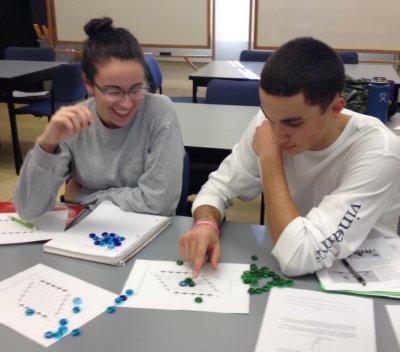Dear Colleagues, Friends, & Supporters,
We had a wonderful time at the joint mathematics meetings in Seattle. It was amazing to receive all the positive feedback from people stopping by our booth. And right after that we had the pleasure to facilitate an IBL workshop for the super committed department at Spokane Falls Community College!
This month's blog is another case study of a recent experience from our inquiry-based classrooms. Christine von Renesse describes her experience of taking the risk of not knowing and how it changed the classroom experience for her and the students.
To whet your appetite for the current series of blogs, we ask whether you can imagine…
- The "weakest" class of non-majors discovering new mathematics appropriate for publication?
- The benefits of purposely not learning the key proofs before walking in to "teach" them in class?
- Why it is often valuable to encourage conflicts in your mathematics classes?
- The importance of trusting your students to determine the path of their mathematical explorations even when you don’t fully know the landscape ahead?
We are looking forward to starting our spring semester and getting ready for our IBL workshop at Assumption College in Massachusetts!
Sincerely,
Julian Fleron, Phil Hotchkiss, Volker Ecke, & Christine von Renesse.

